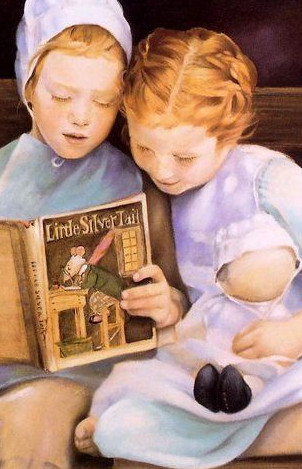Literacy Blogs
- All
- 3-cueing
- academic learning time
- academic vocabulary
- accommodations
- accountability testing
- Active View of Reading
- adolescent literacy
- afterschool programs
- alphabet
- amount of instruction
- amount of reading
- argument
- assessment
- auding
- author awareness
- automaticity
- balanced literacy
- beginning reading
- Book Buddies
- Book Flood
- challenging text
- classroom organization
- close reading
- coaching
- cohesion
- Common Core State Standards
- complex text
- comprehension strategies
- content area reading
- context analysis
- curriculum materials
- Daily 5
- decoding
- departmentalization
- DIBELS
- dictionary skills
- digital texts
- disciplinary literacy
- dyslexia
- early interventions
- effective teachers
- Emily Hanford
- executive function
- family literacy
- fingerpoint reading
- foundational skills
- graphic novels
- guided reading
- heterogeneous grouping of students
- homework
- improving reading achievement
- independent reading
- independent reading level
- informal reading inventories
- informational texts
- instructional level
- invented spelling
- jigsaw instruction
- knowledge
- leadership
- learning disabilities
- Lexiles
- linguistic comprehension
- listening comprehension
- literacy charities
- literacy policy
- literary interpretation
- main idea
- morphology
- motivation
- narrative text
- National Early Literacy Panel
- nonsense words
- oral language
- oral reading fluency
- paraphrasing
- Pause, Prompt, Praise (3P)
- personalized learning
- phonemes
- phonemic awareness
- phonics
- press and media
- principals
- prosody
- Readers' Workshop
- reading comprehension
- reading disabilities
- reading intervention
- reading levels
- reading models
- Reading Recovery
- reading research
- reading skills
- reading strategies
- reading to children
- reading wars
- reading-writing relations
- remedial reading
- rereading
- Response to Intervention
- Scarborough's Rope
- science of reading
- seatwork
- semantics
- sentence comprehension
- sequence of instruction
- set for consistency
- set for variability
- shared reading
- shared reading
- sight vocabulary
- simple view of reading
- Simple View of Reading
- small group instruction
- social studies
- sound walls
- Special Education
- speech-to-print phonics
- spelling
- stamina
- summarizing
- Sustained Silent Reading
- syllabication
- syntax
- syntax
- testing
- text complexity
- text interpretation
- text reading fluency
- text structure
- theme
- think-pair-share
- trauma
- visualization
- vocabulary
- word walls
- writing
- zone of proximal development (ZPD)
Literacy in Northern Ireland
Sorry about my absence these past few weeks. I've missed writing here, but it couldn't be helped. We were off to work in Belfast, Northern Ireland for our friends at Barnardos (which is an amazing social service, educational charity/provider agency). And Cyndie and I have been fighting strep throats and bad colds ever since (I might be related to the folks who live in that part of the world, but my immunities are American). In any event, I am happy to be back to share what I have learned. On my first day in Belfast, I was asked to talk about ...
Seven Reasons to Love the Common Standards
Today the National Governors Association and the Council of Chief State School Officers released the new draft of the common core standards for public comment. Yipee! I'm so happy to see these. Here are 7 reasons you should be happy, too. 1. They are common! Unlike any reading/writing/language standards that we have had in the past, these are truly going to be widely adhered to. In the past, we never could have common tests or common curricula because everyone had different standards. Now there will be the United States and Texas (and these are such good standards, at some point I think Texas ...
Should We Teach Phonics to English Learners?
Blast from the Past: First posted March 7, 2010; re-posted April 25, 2018; and re-posted again on November 18, 2023. I wrote this blog entry largely based on the conclusions that Isabel Beck and I had drawn on behalf of the National Literacy Panel for Language Minority Children and Youth. There were very few experimental studies that looked at the particulars of teaching reading to English Learners, but what was there was consistent: instruction that had been effective with native language populations generally was effective with second language learners, too. There were only three studies of explicit teaching of phonics ...
Sight Words for Kindergarten? Yes, But Not Too Many
Blast from the Past: This entry was first posted on February 26, 2010 and was re-issued on February 2, 2019. When this blog entry first posted the only part that was controversial was the number of words recommended (since some of the publishers and consultants were promoting large numbers of sight vocabulary and I was suggesting they were overdoing it). These days the dyslexia-focused advocates would likely fry me for supporting the idea of teaching sight words directly (and not just as an outcome of phonics). Basically, sight words are words students can identify immediately with no evident sounding or mediation. If decoding is taught well and ...
What Counts as Preschool Literacy Teaching?
Becky Schaller recently sent the following note to this blog: I am struck by how different literacy instruction for preschoolers is by your description here than it was ten years ago. Back then, we also included teaching literacy by encouraging pretend writing in the different areas of the room. In the dramatic play area, children might pretend to write out a grocery list. In the block area, they might make a sign. Does literacy during play time count any more? Or is the focus more teacher directed now? Her question as to "what counts as literacy instruction?" is a fair one. It ...
Here's a Reading Improvement Plan that Flunks
Recently, I heard about an idea being entertained by government officials in Indiana: improve reading by flunking more kids. The idea is that if a youngster reaches third grade and isn’t reading well enough, you hold the child back to give them the time to catch up. As you might know, I’m a big supporter of the idea of increasing the amount of teaching that we provide kids: longer school days, longer school years, and, yes, even more school years. So, what of this plan to give more teaching to third-grade laggards? Well, you also know that I believe in following the ...
How Much Preschool and Kindergarten Literacy Instruction is the Right Amount?
I just received this request for information from a friend: The question being posed is, "how many minutes of literacy instruction is recommended for early childhood, ages such as preschool and kindergarten?" The amount recommended in our district for grades 1-8 is 120 minutes, so we obviously need to rethink our message to the early childhood program. I'm not sure if you are familiar with or if this is relevant, but the early childhood program (preschool - kindergarten) uses Creative Curriculum, which incorporates center choices with whole group reading and writing instruction. Thank you in advance for your advice! My response: There are no data that I am aware of on that ...
More Ideas Not Everyone Will Like: Musings on Teacher Education
This week I had the opportunity to spend some time with some old friends. One of them, Mary Beth Curtis, reminded me about a column I had published in Reading Today when I was IRA president. The column was about teaching and teacher education and it provoked a great deal of controversy and comment at the time, so I remembered it quite well. Her reminder seems timely given the big kerfluffle over teacher education right now, so I'm re-issuing that piece here and now (the original title was "More Ideas Not Everyone Will Like"--I've added the post colon description for this wider ...
How do kids learn to comprehend?
For many years, reading comprehension wasn't taught at all. American students read text aloud for much of the 19th century without a lot of discussion. Early in the 20th century, Thorndike found that if readers were asked questions about what they had read, they understood and remembered more. Soon after, publishers created teacher’s guides (an innovation of the ‘20s and ‘30s), and they all included questions for teachers to ask to facilitate comprehension. Things began to change again in the 1960s: the idea that we could guide students to think about text more effectively, not just by rehearsing after reading (e.g., ...
When Time Isn't the Only Thing
For 20 years, my speeches and writing have been heavily oriented towards time--amount of instruction. I have made a big deal that schools with longer school days tend to do better as do countries with longer school years; that summer school programs increase achievement as do many after school programs; that snow days lower school achievement, as do student absences; that extended school years and all-day kindergartens work; that classrooms differ in how much instruction they provide and that these differences are related to student learning, and that guiding teachers to use time better improves achievement. A policymaker recently pointed out ...






.jpg)

.jpg)